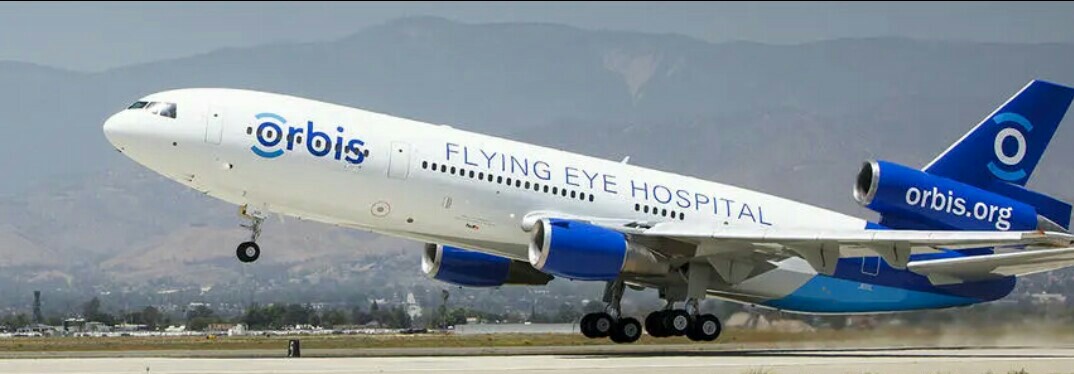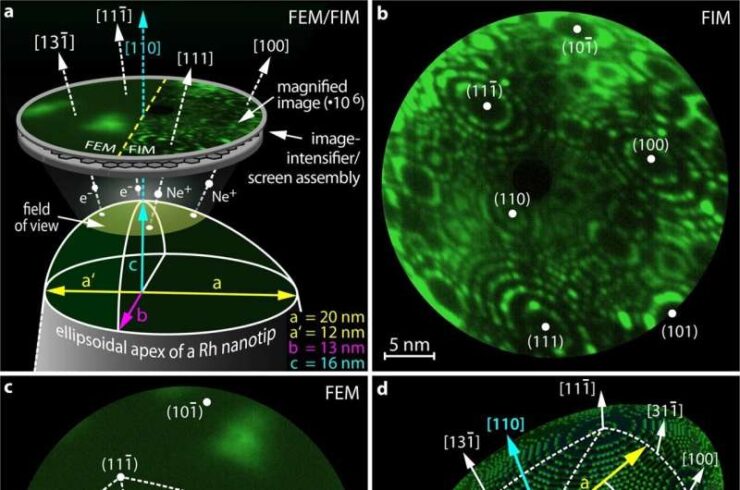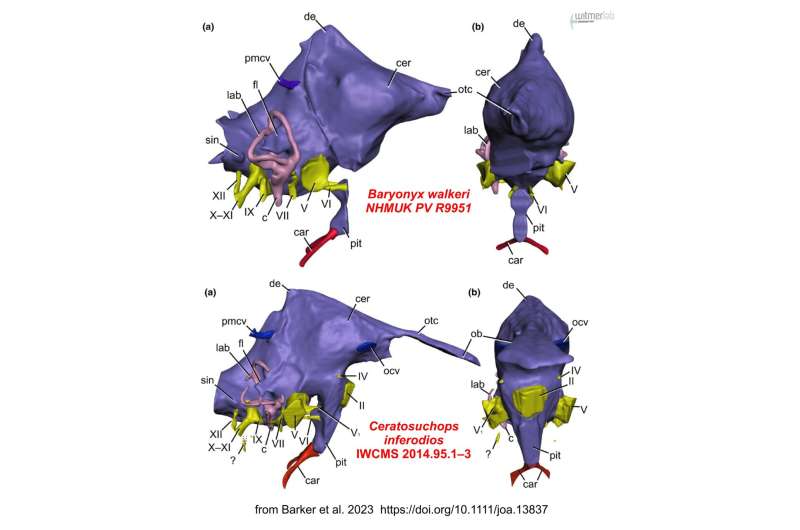TSS DEBUTS IN CHINESE:Orbis:Changing the way the world sees
作者:Poisonerver
By:Poisonerver
声明:此文章并非TSS官网原有文章,为STARSET_Mirror成员整理创作,希望各位不要误解。
Disclaimer: this article is not originally published on TSS official website. It is created by STARSET_Mirror members.
世界卫生组织(WHO)在2019年10月10日在”世界爱眼日”(每年十月的第二个星期四)前夕发布了《世界视力报告》,该报告根据目前的研究数据汇总了目前全球导致视力损伤的几种重要眼病的估计人数。
The World Report on Vision, released by the World Health Organization (WHO) on 10 October 2019, ahead of World Eye Care Day (the second Thursday in October), summarizes current estimates of the number of people worldwide WHO suffer from several major eye diseases that cause visual impairment, based on current research data.
目前全球视力损伤人数22亿人(包括尚待解决的视力损伤人数),其中至少10亿人的视力损伤能被预防或尚待解决,这其中尚未得到戴镜矫正的屈光不正1.237亿、白内障6520万、青光眼6900万、角膜混浊420万、DR300万、沙眼200万、尚未得到戴镜矫正的老视眼8.26亿人。
There are currently 2.2 billion people worldwide with visual impairment (including those with unsolved visual impairment), at least 1 billion of whom can be prevented or have unsolved visual impairment, Among them, 123.7 million had refractive errors, 65.2 million had cataracts, 69 million had glaucoma, 4.2 million had corneal opacities, 3 million had DR-trachoma, 2 million had trachoma, and 826 million had presbyopia that had not been corrected by goggles.
上世纪六十年代末期,美国眼科医生David Paton在游历各国后,意识到在发展中国家极度缺乏眼科学教育和眼部护理,导致盲疾频生。让他如此忧虑的原因是因为当时全球90%的可预防性盲疾都发生在发展中国家,而这样的落差必须有人来填补。但是,来自发展中国家的医生护士却由于高昂的培训费用,国际旅行和住宿费用,难以去发达国家接受培训。1973年,奥比斯计划正式展开,致力于为全球医护人员开展眼科培训。其后,David Paton梦想成真,得到美国联合航空捐赠一架在1960年建成的道格拉斯DC-8飞机,在美国国际发展局拨款资助下,飞机内部被大规模改装成为一间设备完善的眼科医院,到了1982年3月,奥比斯飞机医院正式启航,在巴拿马进行了第一次救盲工作;自此以后,一支灵活的奥比斯医疗队伍,联同世界先进国家的义务眼科专家到访发展中国家,为失明人士带来光明。1986年,奥比斯将医疗工作由飞机伸延到地面医院,在当地医疗设施贫乏的环境下,向医护人员亲身示范眼科手术及分享临床经验,让他们学以致用。
In the late 1960s, David Paton, an American ophthalmologist, traveled around the world and realized that the lack of ophthalmology education and eye care in developing countries was leading to an epidemic of blindness. What worried him so much was that 90 percent of preventable blindness occurred in developing countries, and someone had to fill the gap. However, doctors and nurses from developing countries find it difficult to receive training in developed countries due to the high cost of training, international travel and accommodation. In 1973, the Orbis Program was launched to provide ophthalmology training to medical professionals around the world. Later, David Paton’s dream came true. United Airlines donated a Douglas DC-8 airplane built in 1960. With a grant from the United States Department of International Development, the interior of the airplane was massively converted into a well-equipped eye hospital. The first blind rescue was carried out in Panama; Since then, a flexible orbis medical team, together with volunteer ophthalmologists from advanced countries around the world, has visited developing countries to bring light to the blind. In 1986, Orbis extended medical work from airplanes to ground hospitals, demonstrating eye surgery and sharing clinical experience with medical staff in a local environment with poor medical facilities, so that they can apply what they have learned.
什么是奥比斯
What is Orbis
国际奥比斯 (Orbis International, 简称Orbis) 是一个国际性非政府非营利机构,肩负全球救盲使命。奥比斯通过提供医疗设备和技术,以及培训眼科医护人员,协助发展中国家制订长远的救盲计划,解决可避免的盲疾。奥比斯积极提升各地眼科医护人员的技术水准,期待受助地区的医疗伙伴能够自行营运,为人们提供可负担、方便及持续的优质眼科服务。奥比斯的宗旨是“改变世界的视野 (Changing the way the world sees)”。“奥比斯”(Orbis)在拉丁文中含有“眼睛”的意思,在希腊语中意味“地球”。奥比斯亦是世界卫生组织主导的视野2020(VISION 2020: the Right to Sight)合作计划的其中一名始创成员,目标是在2020年前,扫除全球可避免的眼疾。
Orbis International (referred to as Orbis) is an International non-governmental non-profit organization, shoulder the global mission to save the blind. Orbis assists developing countries in developing long-term plans to address avoidable blindness by providing medical equipment and technology and training eye care workers. Orbis is actively promoting the technical level of ophthalmic medical staff in different regions, and expects medical partners in the assisted areas to operate their own operations and provide affordable, convenient and sustainable quality ophthalmic services to people. Orbis aims to “change the way the world sees.” Orbis means “eye” in Latin and “earth” in Greek. Orbis is also a founding member of the WHO-led VISION 2020: The Right to Sight collaboration, which aims to eliminate avoidable eye diseases worldwide by 2020.
奥比斯是一个中立的、非盈利的国际人道主义发展组织。奥比斯的使命是通过与当地合作伙伴的合作,来管理,培训和提高当地医疗团队水平,使他们能更好的服务于当地人民,提供可负担,高质量的眼科服务。奥比斯的愿景是通过防治盲疾来改变人们的生活。
Orbis is a neutral, non-profit international humanitarian development organization. Orbis’ mission is to manage, train and improve local medical teams in partnership with local partners to better serve the local population and provide affordable, high-quality ophthalmic services. Orbis’ vision is to change people’s lives through prevention and treatment of blindness.
奥比斯眼科拥有全球唯一一架飞行眼科医院。第一代眼科飞行医院于1982年建成,它是由一架DC-8型飞机改装而成,内部设有预检室、检查室、微型手术室、护理室等手术设备,既可施行手术又可从事示范教学、并通过双向通讯设备,直接与示范医生进行问答。此外,配备了来自全球的一批拥有高级技术的医生、护士、工程师、机师、等为随机人员。
Orbis eye has the world’s only flying eye hospital. The first generation of ophthalmology flying hospital was built in 1982. It was refit from a DC-8 aircraft, equipped with pre-examination room, examination room, miniature operating room, nursing room and other surgical equipment, which can not only perform operations but also conduct demonstration teaching, and directly conduct q&A with demonstration doctors through two-way communication equipment. In addition, it is equipped with a group of highly skilled doctors, nurses, engineers, pilots and other random personnel from all over the world.
自1986年,奥比斯将医疗工作由飞机伸延到地面医院,在当地医疗设施贫乏的环境下,向医护人员亲身示范眼科手术及分享临床经验,让他们学以致用。自1999年起,奥比斯开始与孟加拉国,中国,埃塞俄比亚,印度,越南以及拉丁美洲和加勒比海地区各国建立长期的地面项目,以帮助提升当地的医疗水平。
Since 1986, Orbis has extended medical work from aircraft to ground hospitals, demonstrating eye surgery and sharing clinical experience with medical staff in the local medical facilities, so that they can apply what they have learned. Since 1999, Orbis has established long-term ground projects with Bangladesh, China, Ethiopia, India, Vietnam and countries in Latin America and the Caribbean to help improve local health care.
奥比斯组织总部设在美国纽约。现在在英国、爱尔兰、新加坡、加拿大、香港、澳门、中国大陆和南非设有代表处。自1982年成立以来,来自30多个国家的400多位世界顶级的眼科专家,先后访问了四大洲70多个国家和地区,使2万名眼疾患者在专机上进行手术治疗,使他们重见光明,并有3万多名各国眼科医生、护士参与了它的训练计划,使之成为推行防盲、治盲的骨干。
Orbis is based in New York. We now have representative offices in the United Kingdom, Ireland, Singapore, Canada, Hong Kong, Macau, Mainland China and South Africa. Since it was founded in 1982, more than 400 from more than 30 countries of the world’s best ophthalmologist, visited four continents, more than 70 countries and regions, the surgical treatment on 20000 patients with eye diseases in the plane, so that they see light, and there are more than 30000 countries eye doctors, nurses participated in its training plan, make it become the backbone of the implement of blindness.
奥比斯的发展
The Development Of Orbis
到2019年底为止,奥比斯在全球17个国家和地区开展长期项目,包括:喀麦隆,埃塞俄比亚,加纳,肯尼亚马拉维,卢旺达,坦桑尼亚,乌干达,赞比亚,孟加拉国,尼泊尔,印度,中国,蒙古,越南,秘鲁,玻利维亚等。 2019年,奥比斯共派遣了144名志愿医护工作者在飞行眼科医院和当地医院开展培训。 而在2018年,奥比斯全年培训医护工作者共63063人,为3199194人提供眼部检查和视力筛查,验配了395611副眼镜,开展了78195次手术和激光治疗。
By the end of 2019, Orbis is working on long-term projects in 17 countries and territories around the world, including: Cameroon, Ethiopia, Ghana, Kenya, Malawi, Rwanda, Tanzania, Uganda, Zambia, Bangladesh, Nepal, India, China, Mongolia, Vietnam, Peru, Bolivia and more. In 2019, Orbis sent 144 volunteer health care workers to train at the Flying Eye Hospital and local hospitals. In 2018, Orbis trained 63,063 healthcare workers, provided eye examinations and vision screening for 3,199,194 people, tested 395,611 pairs of glasses, and carried out 78,195 surgeries and laser treatments.
工作方式
How Orbis Works
奥比斯飞行眼科医院
Orbis Flying Eye Hospital
1980年,联合航空将一架DC-8货机捐献给了奥比斯,经过2年的改装后,在1982年,奥比斯眼科飞机医院正式启航,当年即到访广州开展培训。1992年,基于项目需求,奥比斯在捐款者的支持下购买了一台DC-10飞机,并进行改造。1994年,第二代飞机DC-10开始服役,第一代DC-8正式退役,并由奥比斯捐献给了中国政府,现在仍保存在北京的中国航空博物馆。现在正在服役的,乃是第三代眼科飞机MD-10,其前身是一架货机,在合作伙伴的慷慨支持下,于2016年已完成全面的改装工作。仅2019年,超过1000名医疗专业人员在眼科飞机医院上受到培训,通过包括演讲、讲座和手把手培训。
In 1980, United Airlines donated a DC-8 cargo plane to Orbis. After two years of modification, orbis Eye Hospital officially opened in 1982. In the same year, orbis visited Guangzhou for training. In 1992, orbis bought a DC-10 and modified it with the support of donors for the program. In 1994, the second-generation aircraft DC-10 entered service, and the first-generation DC-8 was officially retired and donated by Orbis to the Chinese government, where it is still preserved at the China Aviation Museum in Beijing. The mD-10, a third-generation eye aircraft formerly a cargo aircraft, was fully refitted in 2016 with the generous support of its partners. In 2019 alone, more than 1,000 medical professionals were trained at the Eye Hospital through lectures, lectures and hand training.
远程医学教学平台
Cybersight
奥比斯远程医学教学平台是一个屡获殊荣的互联网远程医学教学平台。透过Cybersight,奥比斯义务眼科医疗专家可以利用最新的互联网及移动技术,教导及支援世界各地的眼科医疗人员。Cybersight将课堂和手术过程现场直播至世界各地的伙伴医院和课室,它也是一所有生命的图书馆,结集了奥比斯在培训工作方面的成果。2019年,Cybersight教学平台就培训了183个国家超过7,600名眼科医疗人员,8,000名新用户进行了登记,我们亦协助促成了全世界超过1,800次病人咨询。
Orbis telemedicine teaching platform(Cybersight) is an award-winning Internet telemedicine teaching platform. Through Cybersight, Orbis volunteer eye care specialists can use the latest Internet and mobile technologies to educate and support eye care professionals around the world. Cybersight, which broadcasts classes and surgeries live to partner hospitals and classrooms around the world, is also a library of life that aggregates Orbis’s training efforts. In 2019, the Cybersight teaching platform trained more than 7,600 eye health professionals in 183 countries, enrolled 8,000 new users, and facilitated more than 1,800 patient consultations around the world.
长期地面项目
Long-term Country Program
透过与健康服务领域的伙伴机构携手建设及强化现有的眼科服务,奥比斯在世界不同国家的不同地区帮助当地医院进行长远及可持续的眼科医疗服务能力提升。由偏远的乡镇到城市,奥比斯都致力提供设备及知识,帮助当地眼疾患者重获视力。现在,奥比斯在全球19个国家和地区开展着长期的地面项目。
By working with partners in the health services sector to build and strengthen existing eye care services, ORBis helps local hospitals in different parts of the world to build long-term and sustainable eye care capacity. From remote towns to cities, Orbis is dedicated to providing equipment and knowledge to help local people with eye diseases regain their sight. Orbis now has long-term ground projects in 19 countries and territories around the world.
更多信息请参考国际奥比斯组织。
Read more at Orbis.











